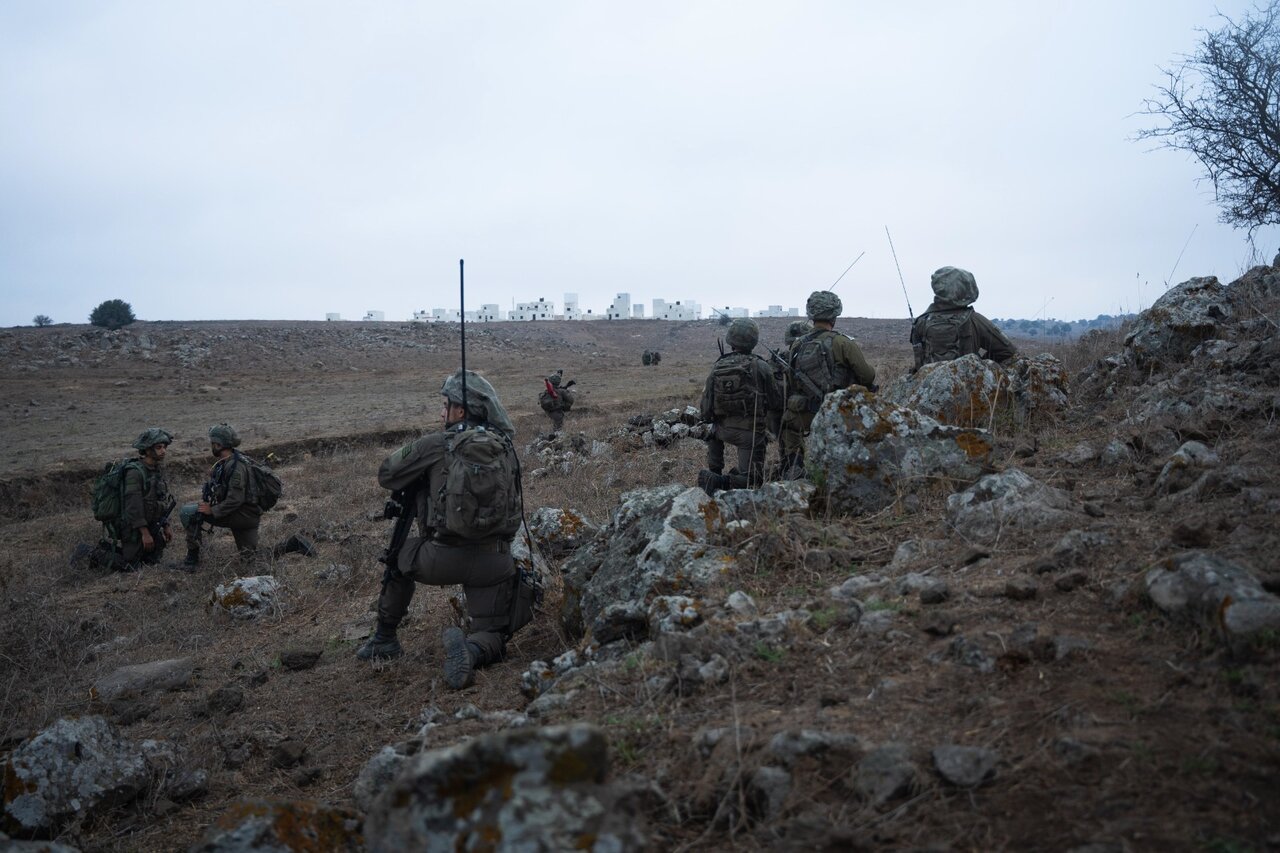Stormy skies ahead: Israel faces unprecedented resistance

TEHRAN- Israel has been driven into a corner as regional resistance groups intensify attacks against the regime in the wake of Iran’s ballistic missile salvo on Tel Aviv.
The first face-to-face clashes erupted between the Hezbollah resistance movement and Israel since the regime announced its ground offensive in southern Lebanon on Tuesday.
Israeli media said two Israeli soldiers were killed and 18 others wounded in clashes with Hezbollah fighters on the border with Lebanon near the town of Odaisseh on Wednesday.
Israeli troops came into Lebanese territory but were repelled in ground fighting. It was an ambush that forced the Israeli forces back and marked a victory for Hezbollah.
The Lebanese resistance movement also struck the Shtula settlement, where Israeli soldiers are staging on the border. It also targeted a large infantry force in the Misgav Am settlement with missiles and artillery. Later on Wednesday, the Israeli army said its combat losses in southern Lebanon has increased to eight.
The head of Hezbollah's media office said the clashes with Israeli soldiers in southern Lebanon dealt "big losses" to the regime.
"We’re in the first round of war, it is the beginning of what happened in Odaisseh today," Mohammad Afif told reporters at a news conference in Dahiya, a suburb in the south of the Lebanese capital.
"Our forces and resistance fighters are fully prepared to confront and resist the enemy," he added.
Israel has air superiority, but when it comes to ground battles, Hezbollah has the upper hand. The resistance group is able to transform the battlefield into a graveyard for Israeli troops.
Israel’s so-called limited ground incursion into southern Lebanon came after the regime launched a massive bombing campaign on Lebanon.
Hezbollah says the resistance movement dealt “big losses" to Israeli troops during clashes on Wednesday. More than 1,000 Lebanese people have been killed in the Israeli airstrikes that began on September 23. Israel also assassinated Hezbollah Secretary General Sayyed Hassan Nasrallah in brutal strikes on Dahiya on Friday.
Hundreds of thousands of Lebanese people have also fled their homes.
Hezbollah and Israel have been trading fire since the regime declared war on Gaza on October 7. The Lebanese resistance movement has fired rockets and missiles toward Israel in solidarity with Palestinians in Gaza.
Israel announced its ground incursion into Lebanon with the purported aim of deterring the Hezbollah resistance movement from continuing its attacks and returning evacuated Israelis to the north.
Tens of thousands of people have become displaced in northern Israel and southern Lebanon amid the exchanges of fire between Israel and Hezbollah over the course of Gaza’s nearly one-year war.
Yemen’s Ansarullah movement has also fired missiles toward Israel and hit Israeli-linked ships in support of Palestinians in Gaza over the regime’s genocidal war on the territory which has so far claimed the lives of about 41,700 people including some 17,000 children.
The Yemeni army said on Wednesday that it had fired cruise missiles “deep inside” Israel.
“The missile force of the Yemeni Armed Forces carried out a military operation targeting military sites deep inside the Zionist entity (Israel) in occupied Palestine with three Quds 5 cruise missiles,” it said in a statement.
The Yemeni army says it has successfully hit military sites “deep inside” Israel with cruise missiles. I added, “The missiles were able to successfully reach their targets amid the enemy’s secrecy about the results of the operation.”
A week ago, the Yemeni army said it had fired a missile at Ben Gurion Airport in Tel Aviv.
Rising attacks by the Ansarullah and Hezbollah resistance movements come as Iran launched at least 180 missiles into Israel on Tuesday night which targeted the regime’s strategic military and intelligence sites.
Iran said it fired the missiles as retaliation for the Israeli assassination of the Hezbollah leader, Hamas political chief Ismail Haniyeh and a top Iranian military advisor who was killed in the regime’s strikes against Beirut.
Israel assassinated Haniyeh in Iran on July 31. He had traveled to Tehran to attend the swearing-in ceremony of President Masoud Pezeshkian.
Presently, resistance is growing against Israel’s genocidal war in Gaza as well as its invasion of Lebanon and military adventurism in the region. The Benjamin Netanyahu regime has found itself in a precarious position as public resentment also continues to grow across the globe against its crimes in Gaza and Lebanon.
Leave a Comment